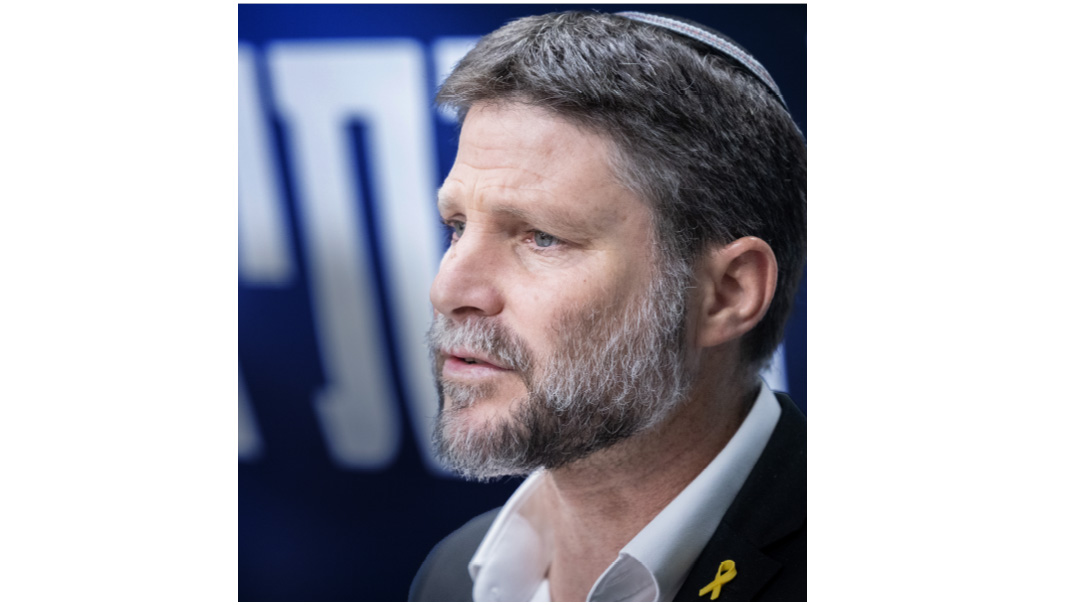Touching Eternity
| February 15, 2022Our very first words position us for prayer

Sometimes, the things most familiar to us are in fact our biggest unknown. Take, for example, the words “Baruch Atah, Hashem Elokeinu.” Over the span of a year, between brachos and tefillos, we’ve likely recited these words thousands of times. Yet despite their constant repetition, many of us can’t accurately explain them.
When we make brachos over food or recite birchos hashachar, missing the import of “Baruch Atah, Hashem Elokeinu” is unfortunate. But when it comes to Shemoneh Esreh, neglecting their meaning may invalidate our actual tefillah.
Birchas Avos is the opening brachah of Shemoneh Esreh that begins with the first words of the tefillah and end with the words “magen Avraham.” The Shulchan Aruch (Orach Chayim, 101:1) explains a basic kavanah requirement for Shemoneh Esreh: “A person must have kavanah for [the words of] all the brachos [of Shemoneh Esreh]. However, if he can’t sustain kavanah for all of them, he should at least have kavanah for [the brachah] of Avos. If he didn’t have kavanah for Avos, even if he did for the rest [of Shemoneh Esreh], he must return to the beginning [of the tefillah].
The Rema, recognizing the potential to continuously re-daven the Birchas Avos without proper kavanah, comments: “In our times, we don’t return [to the beginning] due to a lack in kavanah, because even when repeating [the brachah], it’s likely we’ll still not have kavanah...” (ibid)
Infinity and Beyond
This brachah is the only place in all of Shemoneh Esreh that understanding the meaning of the words is absolutely imperative. Therefore, our obligation to understand the words of Shemoneh Esreh begins with none other than “Baruch Atah, Hashem Elokeinu.”
The word baruch is a statement of affirmation that shares a root with “breichah,” a wellspring or water source. When I say baruch, I affirm that Hashem is the origin of all brachah in my life. From the mundane (my furniture, functioning kitchen, warm boots, car), to the elevated (my family, intellectual capabilities, spiritual influences), it’s all from Him. Baruch is my opportunity to reconnect with this vital truth and summon the gratitude due my Creator.
Baruch begins with the letter “beis,” designating multiplicity. It derives from the word brachah, indicating “ribui, tosefes,” addition, augmentation. This aspect of baruch is a bakashah, a request for Hashem to reveal to us more of His munificence.
Hashem is the greatest of all enigmas. We’ll never remotely fathom Him. Yet one of the ways He reveals His specific attributes to us is through His Name. Each one of His names epitomizes another facet of His Infinite Being, and during the first two brachos of tefillah, it’s crucial we comprehend them.
The name “Hashem,” written with the four letters of yud, hei, vav, and hey, but pronounced as Adoy-shem, conveys two meanings that correspond, respectively, to both the spelling and pronunciation of His Holy Name.
The four letters of His Name can be reconfigured to express His timelessness: Hashem is “hayah” — He preexisted everything; “hoveh” — exists currently, in real time; and “yihyeh” — will endure forever.
The Real Master
Hashem was here when Adam and Chavah were the only representatives of humanity, when Avraham Avinu rejected his world’s belief system, when the shevatim were birthed, when the Batei Mikdash were built and burned. He ushered the reign of Tannaim and Amoraim, Geonim and Rishonim, chassidus, and mussar. He watched our adversaries repeatedly ply their wicked plans and wretchedly fail.
He engages every moment of history at once, concurrent phenomenon subject to His enduring purview. Hashem is hayah.
Hashem is hoveh: He’s cradling me now in my current reality, while moving seamlessly forward with me as “now” continually slides back into “then.”
Hashem is yihyeh: He exists in the future, crafting and molding events years and years away, and He’ll still be when I have long reverted to dust.
And He is all of these things — hayah, hoveh, yihyeh — simultaneously. He preexisted me and will outlive me, and I’m but a speck on the continuum of His existence.
Can I harbor any doubt that He knows what’s best for me?
The way we pronounce His name, Adoy-shem, is a phonetical reminder of His adnus, rulership. He is Adon Hakol, everything is His. Even the people who present themselves as the “adon” of their respective fields are merely puppets, marionettes abiding His will.
Is the bank manager the true adon of my mortgage approval? Is the admissions committee the adon of my child’s acceptance to school? Is the interviewer the genuine adon of job distribution? Is the shadchan the adon of my daughter’s dating prospects?
Adnus belongs solely to Hashem, and as the Adon Hakol, He’s the only authentic influence in my life.
Hashem is Elokeinu. The Shulchan Aruch (ibid, 5:1) explains this as “takif, baal hayecholes u’baal hakochos kulam — He’s powerful, the proprietor of all capability, and all power in its entirety.”
As believing Jews we reject the clockmaker theory, which suggests that Hashem created the moving parts to our world, set it on a functional course, and then left it to proceed, unaided. But how does the descriptive “baal hakochos kulam” explain how He interfaces with His creation?
Nefesh HaChaim explains that from the inception of the world, every “koach” we encounter, from the sun and the wind to the anti-bacterial effects of penicillin, is firmly rooted in, and continuously maintained by Hashem. There’s no existence independent of Him.
The sun doesn’t have the independent ability to illuminate and warm our earth, rather Hashem illuminates and warms through the conduit of the koach called the sun. Rain can’t irrigate the land and fill our aquifers independently, rather Hashem hydrates His world through the koach of rain. He is the true “Meir la’Aretz” and “(nosein) brachah al penei ha’adamah.”
When we refer to Hashem as the Baal Hakochos Kulam, we recall all the pipelines, the koach through which He conveys His goodness: The chemical reactions, physiological realities, and meteorological changes that we encounter in our physical world. He is the true baal, owner of them all.
But He is also takif in His ownership. It’s infinite, unrestricted, and unconstrained. He’s not limited by paucity of knowledge, lack of resources, manpower, government approval, or powerful adversaries. The koach He unleashes and administrates is unrivaled in its utter infinity.
Baruch Atah, Hashem Elokeinu. With my very first words to Hashem in Shemoneh Esreh, I’m reminded that He’s timeless, the source of all brachah in my life, the proprietor of all goodness, and unrestricted in His power and ability.
And now He’s patiently waiting for me to request my needs from Him.
Mrs. Elana Moskowitz has been teaching in seminaries for nearly 20 years.
(Originally featured in Family First, Issue 781)
Oops! We could not locate your form.



